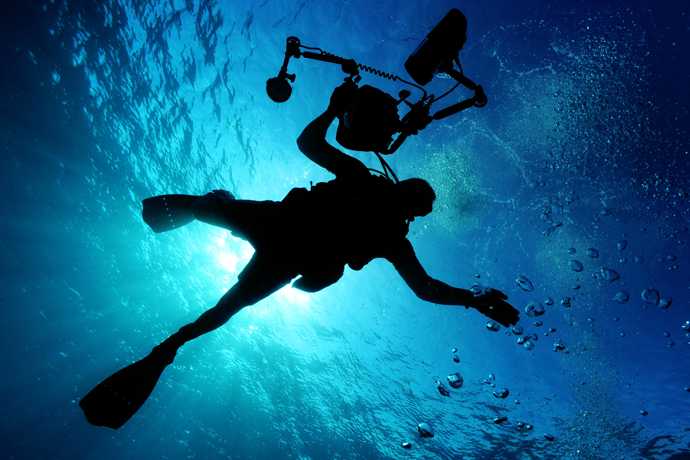Taking the Temperature of our Oceans – An Interview with Dune Ives

Individuals, communities, governments, and businesses all have a role to play in protecting our most critical resource: our oceans. Dune Ives explains.
A psychologist by training, Dune Ives has spent most of her career focussed on change management. As Executive Director of Lonely Whale, a non-profit incubator that drives impactful market-based changes on behalf of our ocean, Dune and her team develop campaigns to bring awareness to ocean health. In September 2017, Lonely Whale’s Strawless in Seattle campaign resulted in 2.3 million single-use plastic straws being removed from the city.
Talk us through the major issues around ocean health that we face today…
I would say at the top of the list, and it may sound odd to start here, is human complacency. As a species we’re out of touch with the oceans, when in fact they are our life support system. We stand by, either because we’re unaware, or because we don’t know how to get involved in issues that impact us every day. These include deoxygenation, which we should all be worried about since we get a lot of our oxygen from the ocean, and over-fishing – over 90 percent of our global fisheries are fully-fished or over-fished.
Another issue is the extent to which our oceans are being polluted by waste such as single-use plastics, and the impact that’s having on marine species. We’re reaching a level where pollution is starting to destroy the oceanic environment in ways that may be difficult to come back from.
What can be done to improve the health of our oceans?
At Lonely Whale, we’re firm believers that the market will lead the way. As general citizens we can rise up, make our voices heard, and make decisions every day that will have a positive impact – such as using a reusable bag at the grocery store. Policy change has an impact as well. But policy change isn’t typically accompanied with the significant resources we need to ensure policies are enacted at a local level. That’s why we believe market-based solutions are the only way forward.
There is currently a great opportunity for market innovation around single-use plastic replacement. And how about technology that enables us to better understand replenishment opportunities with fisheries? Now is the time for market leaders to step in, either with a vertically integrated solution or as a standalone innovation, and fill in the gaps. An example is an initiative called Nextwave, which Lonely Whale is convening alongside Dell to create the first cross-industry, commercial-scale global ocean bound plastics supply chain.

Do you have any advice for businesses that want to help?
There are two pieces of advice I would pass along to business leaders. The first is to become informed. There is a significant amount of data available that can help a business leader not only understand the issues, but realize where their company’s unique value proposition might fit in the ocean health conversation.
The second is simple. Just do something. Start somewhere. Why does Dell, a global tech giant with seemingly no relationship to the ocean, get involved in solving marine litter? Dell became aware of the issues and was so compelled that it couldn’t help but get involved, inspiring other corporations to also look at how ocean-bound plastics are integrated into products. Dell now spearheads a cross-industry global initiative that will solve a significant portion of the marine litter issue.
How does Lonely Whale integrate technology into its ocean health initiatives?
Let’s use the example of Nextwave. We’re processing materials collected from river and coastal areas for use in products and packaging. There are going to be many advancements in technology as we work with engineers from Nextwave companies and figure out how current practices need to be modified to better acquire, process and integrate materials into existing products.
We can also leverage existing technology and apply it in new ways that help people better understand ocean health. In our collaboration with Dell, for example, the tech giant leveraged their virtual reality (VR) expertise to create a 4D story that brought to life the issue of marine litter from the vantage point of a whale navigating the world’s oceans.
What would you like to say to GLOBE Forum delegates?
There is a place for everybody in the conversation about ocean health, and it doesn’t require a significant investment. Everyday we make decisions that make a difference. Every single step forward – either as an individual, a community, a government, or as a business – is necessary to protect the most critical resource we have on the planet: our oceans.
If they de-oxygenate, if there’s no more krill left to feed the whales, if plastic pollution continues to impact the health of coral reefs, it won’t matter how much profit we make and it won’t matter how impressive our revenues are, we will experience the effects of an unhealthy ocean in our lifetime.
This article is part of our new six-part content series, “Echoes of the Forum”, which provides exclusive videos, interviews, and key takeaways and actions from our world-leading sustainable business event – GLOBE Forum.
Our third chapter focuses on the role that materials and resources play in the transition to a circular economy.
View content
Categories

